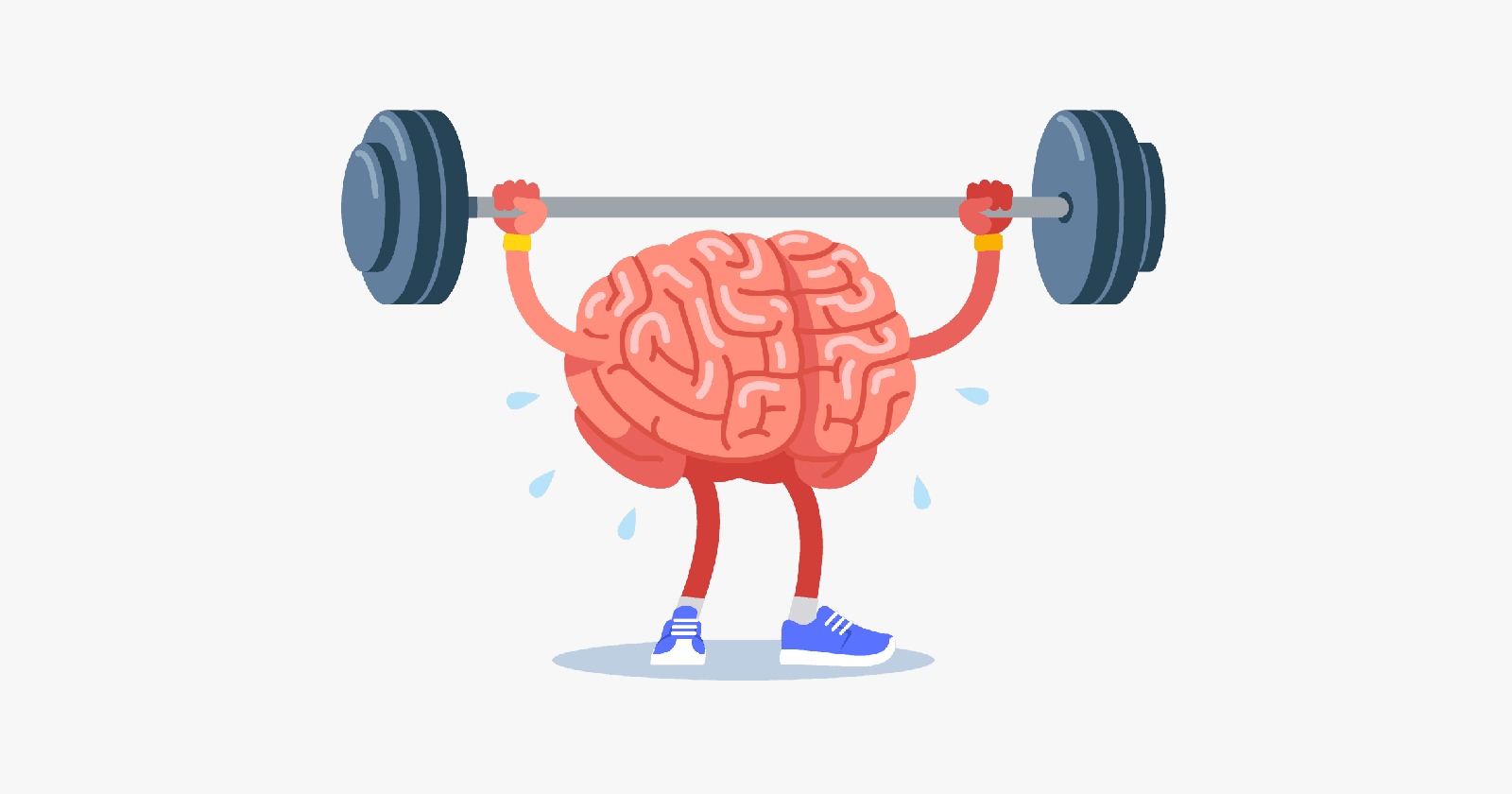
The Science of Morning vs. Evening Workouts.
Discover the science behind the best time to exercise by exploring how circadian rhythms, hormones, body temperature, and personal chronotypes influence performance, fat burning, and muscle growth. Learn the benefits and drawbacks of morning versus evening workouts, practical tips for each, and how to align your exercise routine with your lifestyle and fitness goals for optimal results.
💪 Fitness Guru
42 min read · 14, Aug 2025

Introduction
When it comes to fitness, one of the most debated topics among gym-goers, athletes, and health enthusiasts is whether it’s better to work out in the morning or in the evening. The truth is, both times have their unique benefits, and the choice often depends on a combination of biological, psychological, and lifestyle factors. To understand the best time for you to exercise, we need to dive into the science of circadian rhythms, hormonal fluctuations, body temperature changes, and performance peaks.
This article explores scientific evidence, the pros and cons of each workout time, and how to optimize your training based on your individual goals.
1. The Role of Circadian Rhythms
Your body runs on a circadian rhythm, an internal clock that regulates everything from sleep to metabolism. This rhythm influences hormone production, alertness levels, and even muscle function.
- Morning: Cortisol, the hormone that helps wake you up, peaks early in the day. This can help boost alertness and energy for a morning workout. However, your body temperature is lower, which means muscles and joints may feel stiffer.
- Evening: Your body temperature is higher in the afternoon and early evening, which improves flexibility, enzyme activity, and muscle strength. This is why many people feel physically stronger later in the day.
2. Hormonal Fluctuations and Their Impact
Hormones play a key role in workout performance and recovery.
- Testosterone: Important for muscle growth, peaks in the morning for men, which can make early workouts more effective for strength training.
- Cortisol: Higher in the morning, helping mobilize energy but potentially increasing muscle breakdown if workouts are too intense without proper nutrition.
- Growth Hormone: Released during deep sleep, supporting recovery regardless of workout timing, but evening workouts can lead to slightly higher post-exercise growth hormone spikes.
3. Morning Workouts – Science & Benefits
Morning exercise has been praised for its ability to boost metabolism, improve mood, and establish a consistent routine.
Advantages:
- Better Habit Formation: Fewer distractions early in the day mean you’re less likely to skip your workout.
- Improved Fat Burning: Some studies suggest fasted morning workouts (before breakfast) can enhance fat oxidation.
- Mental Clarity: Morning exercise triggers the release of endorphins, serotonin, and dopamine, improving focus and mood throughout the day.
- Better Sleep: Exercising early can help regulate circadian rhythms, leading to earlier and deeper sleep.
Scientific Insight:
A 2019 study in the Journal of Physiology found that morning workouts can shift your body clock earlier, making it easier to wake up and feel energized in the morning.
Challenges:
- Lower body temperature and reduced muscle flexibility in the morning can increase injury risk.
- Some people feel sluggish or less coordinated early in the day.
4. Evening Workouts – Science & Benefits
Evening exercise is popular among those who like peak performance and higher energy output during workouts.
Advantages:
- Peak Strength & Endurance: Studies show that muscular strength, anaerobic performance, and reaction time often peak between 4 p.m. and 7 p.m.
- Better Flexibility: Higher body temperature in the evening improves joint mobility and reduces injury risk.
- Stress Relief: After a long day, exercise can be a great way to unwind.
- Social Aspect: Evening workouts often allow for group classes and gym meetups, which can increase motivation.
Scientific Insight:
Research from Applied Physiology, Nutrition, and Metabolism found that evening workouts could lead to slightly greater muscle gains because of higher muscle function and training intensity during this time.
Challenges:
- Can interfere with sleep if done too close to bedtime, especially with high-intensity workouts.
- Work or family commitments might lead to skipped sessions.
5. Fat Loss vs. Muscle Gain: Timing Matters
If your goal is fat loss, some research suggests fasted morning workouts might be beneficial because glycogen stores are lower, prompting the body to use fat for fuel.
If your goal is muscle gain or strength, evening workouts may be better due to higher testosterone-to-cortisol ratios and better overall performance.
6. Individual Chronotypes
Your chronotype—whether you are naturally a morning person or a night owl—affects your workout performance.
- Morning Larks: Tend to do better with early workouts.
- Night Owls: Might struggle with morning exercise and see better performance in the evening.
Pro Tip: You can train your body to adapt to either schedule, but it requires consistency for at least 3–4 weeks.
7. Practical Tips for Each Time Slot
Morning Workout Tips:
- Warm up longer to increase body temperature and prevent injury.
- Hydrate immediately after waking up.
- Eat a light snack if doing high-intensity training to avoid low blood sugar.
Evening Workout Tips:
- Avoid high caffeine intake late in the day to prevent sleep disruption.
- Schedule your workout at least 2–3 hours before bedtime.
- Use workouts as a stress-relief tool to mentally disconnect from work.
8. The Final Verdict: Which Is Better?
The best time to work out depends on your personal goals, lifestyle, and body’s natural rhythm.
- For consistency & fat loss: Morning workouts can be effective.
- For performance & muscle growth: Evening workouts may offer an edge.
- For busy lifestyles: Whichever time you can consistently commit to is the best time for you.
The debate over whether morning or evening workouts are more effective has intrigued scientists, athletes, and fitness enthusiasts for decades, and the answer lies in a combination of physiology, circadian biology, hormonal fluctuations, and individual lifestyle factors. At the heart of the discussion is the circadian rhythm—our body’s internal 24-hour clock—that regulates everything from sleep-wake cycles to hormone production, body temperature, and metabolism. In the morning, cortisol levels, which help us feel alert and energized, are naturally at their highest, providing an initial surge of wakefulness that can help power through an early workout. Testosterone, which supports muscle growth and repair, is also typically higher in the morning for men, potentially giving early-day resistance training an advantage. However, morning exercise comes with the physiological challenge of a lower core body temperature, which means muscles are less pliable and joints stiffer, requiring a longer warm-up to prevent injury; energy levels can also feel subdued, especially for night owls. Despite these factors, morning workouts offer significant benefits: they help establish consistency by reducing the risk of daily distractions interfering with training, may improve fat oxidation (especially if done fasted), and trigger endorphin release early in the day, promoting mental clarity, mood stability, and productivity. They also tend to reinforce a healthy sleep cycle, as early activity can shift the circadian rhythm earlier, making it easier to fall asleep at night. On the other hand, evening workouts take advantage of the fact that the body reaches its peak performance window between approximately 4 p.m. and 7 p.m., when core temperature is at its highest, muscles are more flexible, reaction time is quicker, and strength, endurance, and coordination tend to be optimal. This is why athletes often set personal bests in the late afternoon or evening. Additionally, evening exercise can be an excellent way to relieve stress after a long day, benefits from a body already fueled by meals consumed earlier, and often allows for higher training intensity, which can translate to greater muscle gains over time; some studies also suggest post-exercise growth hormone release may be slightly higher in evening sessions. However, potential downsides include the possibility of interfering with sleep if high-intensity exercise is performed too close to bedtime, as elevated heart rate, adrenaline, and body temperature can delay sleep onset in sensitive individuals. Fat loss and muscle gain goals can also influence timing preferences: fasted morning training may enhance fat burning due to lower glycogen stores, while evening sessions may favor hypertrophy and strength gains due to higher testosterone-to-cortisol ratios and better neuromuscular performance. Chronotype—the natural inclination toward being a “morning lark” or “night owl”—also plays a pivotal role; those who wake easily and feel alert earlier may thrive with morning training, while those who feel sluggish before noon may experience subpar performance early in the day and should schedule workouts later. Yet, research suggests the body can adapt to a chosen schedule with consistent training over 3–4 weeks, gradually shifting peak performance toward that time. Practical tips for morning exercisers include drinking water immediately upon waking, having a light snack if doing intense work, and extending warm-ups to raise core temperature, while evening exercisers should avoid large caffeine doses late in the day, aim to finish sessions at least 2–3 hours before bed, and use training as a mental decompression tool. Ultimately, while scientific evidence points to certain physiological peaks in the evening for strength and performance, the most important factor for long-term results is consistency—whichever time of day you can train regularly, recover well from, and fit sustainably into your lifestyle will yield the best outcomes. Therefore, morning workouts excel in building discipline, boosting daily energy, and possibly enhancing fat loss, while evening workouts may maximize performance, muscle gain, and training enjoyment, making the “best” time deeply personal rather than universally fixed.
The debate over whether morning or evening workouts are superior is a nuanced and multifaceted discussion that has fascinated researchers, fitness enthusiasts, and athletes alike, as the answer is not universally fixed but rather depends on a combination of physiological, psychological, and lifestyle factors, with the body’s circadian rhythm playing a central role in determining optimal performance and recovery times, since this internal clock regulates hormone production, sleep-wake cycles, metabolism, body temperature, and energy levels, which fluctuate throughout the day in predictable patterns, thereby influencing how our muscles, cardiovascular system, and nervous system respond to physical activity; in the morning, cortisol, a hormone that promotes alertness and helps mobilize energy stores, naturally peaks, giving early risers an initial boost of wakefulness that can be leveraged for effective workouts, and testosterone, critical for muscle growth and repair, also tends to be higher in men during morning hours, which may theoretically provide an advantage for strength training, although these benefits are tempered by a lower core body temperature, reduced flexibility, and stiffer joints, making proper warm-up routines essential to prevent injury, while energy levels for high-intensity activities may feel subdued for individuals who are not naturally morning-oriented, or “night owls,” which highlights the importance of understanding personal chronotypes when scheduling exercise; nonetheless, morning workouts confer numerous benefits beyond physical performance, including improved habit formation, since exercising early in the day reduces the likelihood of interruptions from work, social obligations, or unexpected events, and enhances mental clarity and mood through the release of endorphins, dopamine, and serotonin, which can boost focus, productivity, and emotional regulation throughout the day, in addition to potentially promoting fat oxidation, especially when workouts are performed in a fasted state before breakfast, as lower glycogen levels encourage the body to utilize stored fat for energy, and morning exercise has also been associated with better sleep patterns, as it helps reinforce a consistent circadian rhythm and shifts the body clock earlier, facilitating easier sleep onset at night and more restorative rest overall; conversely, evening workouts are associated with peak physical performance, as the body’s core temperature naturally rises throughout the day, reaching optimal levels in the late afternoon and early evening, which enhances muscle elasticity, joint mobility, and enzyme activity, thereby improving strength, endurance, reaction time, and overall exercise efficiency, making it an ideal window for high-intensity training, resistance workouts, and performance-focused activities, and the elevated energy and alertness at this time also allow for greater intensity and volume, which can contribute to increased muscle hypertrophy and strength gains over time, while also providing a valuable outlet for stress relief after a long day, helping to improve mood and reduce tension; however, evening exercise carries potential drawbacks, particularly for individuals sensitive to sleep disruption, as workouts performed too close to bedtime can elevate heart rate, core temperature, and adrenaline levels, delaying sleep onset and potentially affecting sleep quality, although timing sessions at least two to three hours before bed, monitoring caffeine intake, and focusing on moderate-intensity activity can mitigate these effects; the decision between morning and evening workouts is also influenced by individual fitness goals: those seeking fat loss may benefit from fasted morning workouts, leveraging hormonal conditions and lower glycogen stores to optimize fat oxidation, while those pursuing muscle gain or strength improvements might find evening workouts more effective due to higher neuromuscular efficiency, improved performance metrics, and favorable testosterone-to-cortisol ratios, and chronotype plays a pivotal role, as morning-oriented individuals naturally perform better earlier in the day, while evening-oriented individuals see enhanced coordination, energy, and endurance later, yet studies indicate that the body can adapt to a consistent schedule with repeated exposure over several weeks, adjusting circadian rhythms to optimize performance at the chosen time; practical considerations also affect timing, as morning workouts require sufficient hydration, light pre-workout nutrition for high-intensity sessions, and extended warm-ups to prevent injury, whereas evening workouts benefit from fueling through earlier meals, can incorporate social or group fitness opportunities, and may be used as a tool for mental decompression, yet require attention to post-workout recovery and sleep hygiene; ultimately, while scientific research highlights physiological peaks, hormonal advantages, and performance benefits associated with different times of day, the overarching conclusion is that consistency, enjoyment, and alignment with individual lifestyle, goals, and chronotype are more critical than the clock itself, meaning the “best” time to exercise is highly personal and context-dependent, with morning workouts excelling in habit formation, mental clarity, and potentially enhanced fat burning, and evening workouts providing higher strength, endurance, flexibility, and stress relief, making the choice one of sustainable adherence rather than purely scientific superiority, and by understanding the interplay between circadian rhythms, hormones, muscle function, personal preferences, and daily schedule constraints, individuals can strategically select workout times that optimize both short-term performance and long-term health outcomes, while also integrating practical strategies to mitigate challenges such as morning stiffness or evening sleep disruption, ultimately ensuring that fitness becomes a lifelong, adaptable practice rather than a rigid or unsustainable routine.
Conclusion
Morning workouts offer improved habit formation, better fat burning potential, and enhanced mental clarity throughout the day, but may be limited by lower muscle readiness and energy levels upon waking. Evening workouts allow for peak performance, greater strength, and reduced injury risk thanks to higher body temperature and hormone balance, but may risk interfering with sleep for some individuals.
The scientific consensus is that the “best” time to work out is the time you can stick to consistently, while aligning with your fitness goals and lifestyle.
Q&A Section
Q1 :- Is it bad to work out at night?
Ans:- No, evening workouts are not inherently bad. In fact, they can enhance performance and strength. Just avoid exercising too close to bedtime to prevent sleep disturbances.
Q2 :- Do morning workouts burn more fat?
Ans:- Yes, fasted morning workouts can increase fat oxidation, but total daily calorie balance matters more for overall fat loss.
Q3 :- Which time is better for building muscle?
Ans:- Evening workouts often provide better strength and muscle gains due to higher body temperature, improved muscle function, and optimal hormone levels.
Q4 :- Can I switch between morning and evening workouts?
Ans:- Yes, but frequent switching may affect performance. Consistency at one time helps your body adapt better.
Q5 :- What if I’m not a morning person?
Ans:- If mornings feel tough, start with short, low-intensity workouts and gradually increase duration. You can train your body to adapt over time.
Similar Articles
Find more relatable content in similar Articles

How to Build a Skincare Routine Based on Your Skin Type (Oil..
A personalized skincare routi.. Read More

The Perfect Daily Skincare Routine: Morning to Night Essenti..
A perfect daily skincare rout.. Read More

Fitness for the Brain – How Workouts Rewire Your Mind...
“Discover how physical exercis.. Read More

Epigenetics and Exercise – How Your Workout Affects Your Chi..
“Exploring how regular physica.. Read More
© 2024 Copyrights by rFitness. All Rights Reserved.